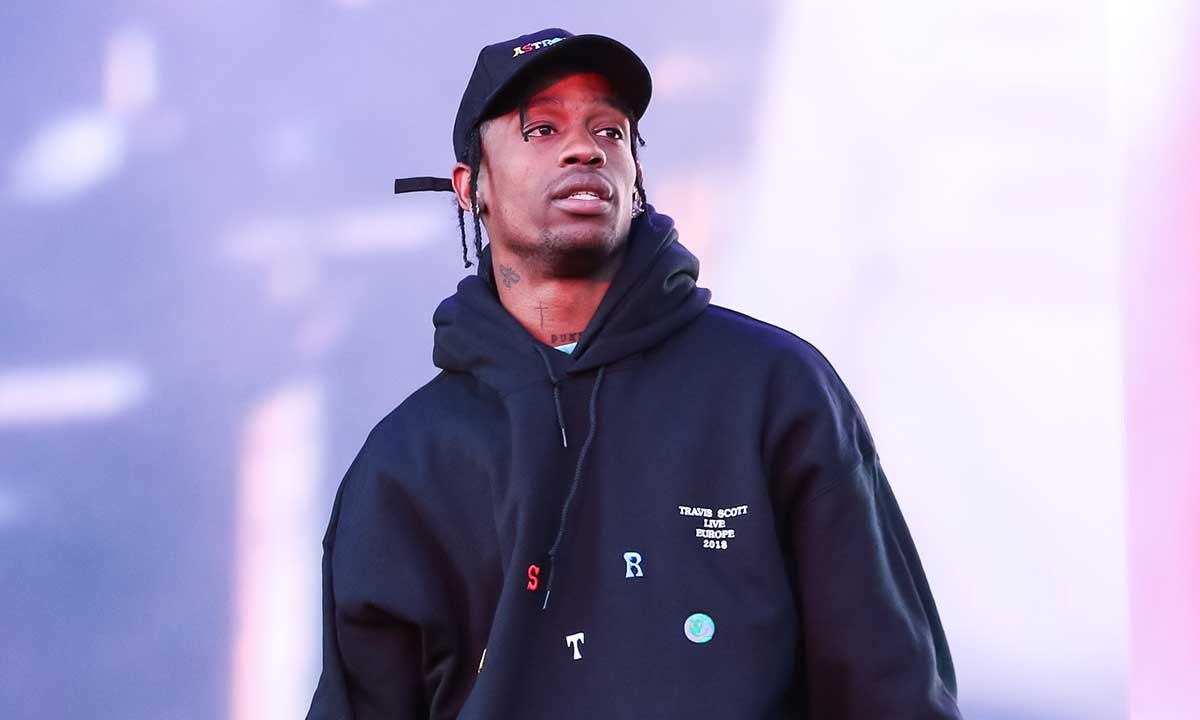Travis Scott has debuted a new song “The Plan” from Christopher Nolan’s new movie Tenet. To accompany the release of this project, La Flame has also dropped a T-shirt – to be fair, we expect no less from the king of merch. This new offering illustrates just why clothing is such a central part of Scott’s brand and success.
The tee designed by Cactus Jack is adorned with the film’s official visuals and the ominous slogan “Time Runs Out.” The limited edition piece – below – is available for 24 hours only via Travis Scott’s online shop and retails for $45. For 99 cents you could also purchase “The Plan” as a digital single with the merch.
This is just the latest example of Scott’s affinity for merch. And while the rapper is undeniably a fashion icon and modern day rockstar, merchandise isn’t simply a part of the Astro brand, it’s much deeper than that. For the longest time, Scott has been using his merchandising power to inflate record sales.
When we speak of physical record sales now, as anachronistic as it sounds, we’re still referring to CDs. And even in the age of Spotify, CD sales count toward an album’s position on the Billboard charts. For example, every Astroworld tee, keychain, and hoodie that sold through Travis Scott’s website also came with a digital copy of the album. The album ultimately peaked at the top of the charts.
Travis Scott has been using these so-called “bundle deals” and clothing sales to achieve higher chart positions and outpace his competitors – an easy feat with 31 million Instagram followers. This strategy drew ire from Nicki Minaj in 2018, who called out Scott after her album Queen debuted at No. 2 on the Billboard 200 Chart. Despite moving 185,000 equivalent album units in its opening week, the album failed to match Scott’s Astroworld, which sold 205,000 copies in its opening.
Minaj blasted Scott and condemned his sales as a gimmick “What we’re not gonna do is have this fucking Auto-Tune man [Scott] come up in here selling fucking sweaters and telling y’all he sold half a million fucking albums,” she said. “‘Cause he didn’t.”
Nicki raised a valid point about the veracity of album sales and brought to Billboard’s attention its flawed ranking system. Billboard concurred and announced a new book of rules late last year, stipulating that a bundle deal must also be available to be purchased separately – as demonstrated by the new Tenet merch and separate digital record on offer.
“The changes come as bundles have been at the center of a public debate around the Billboard albums charts, with many arguing these bundled album sales do not reflect customers’ true interest in purchasing the album, but, rather, the merchandise it’s packaged with. The new rules look to address that concern, by offering customers the option to purchase the merchandise with or without the album,” Billboard explained. However, the subtle change of rules has done little to damage Scott’s profitable merch strategy.
With bundle deals such as Scott’s, the purity of an album sale has become distorted. Travis Scott is certainly not the only artist who uses merch to inflate record sales, but he has definitely mastered this market better than most. And to an extent, he can’t be faulted. In the streaming era, the margin on selling music has shrunk, and selling clothing is one of the few arenas where profit can still be made. Travis Scott has turned the merch strategy into a goldmine and he’s running with it.

